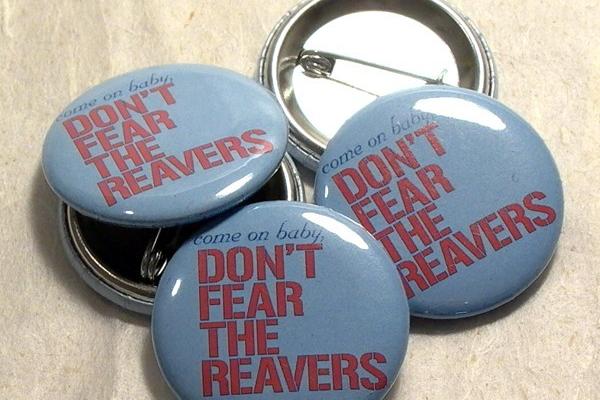Happy Star Wars week! This piece is part of a series on God in sci-fi and fantasy. Read the other entries here.
For someone who identifies as an atheist, Joss Whedon has an awful lot of Christian fans.
A casual Google search for “Joss Whedon and religion” brings up countless think pieces, blog posts, and even a few spiritual guidebooks regarding the faith, philosophy, and worldviews present in his work. Whedon may not profess spiritual belief, but throughout his career, from Buffy the Vampire Slayer to Avengers and Agents of S.H.I.E.L.D., his work has fascinated believers.
This may be, in part, because Whedon is a humanist, and his belief in respecting the dignity of all people is a common theme in his work. Whedon’s shows consistently emphasize compassion for people of all backgrounds and worldviews, even (especially) when his characters’ beliefs don’t match up.
But I think the appeal goes beyond that. Whatever their setting or story may be, Whedon’s shows have always been about one thing: relationships. Community and family relationships in particular. And no show of his displays that more clearly than his sci-fi space western, Firefly.
Firefly's legacy is a short one: broadcast on Fox in 2002, the series only has 13 recorded episodes, 11 of which actually made it to air. This was followed by a feature film, Serenity, in 2005, which wrapped up a few of the series’ loose ends. To call it “brilliant but canceled” doesn’t quite do it justice. Part of the experience of Firefly fandom is understanding that the story of the show’s production — a scrappy underdog slammed by corporate overlords — uncannily mirrors the plot of the show itself.
That plot follows the adventures of the crew of Serenity, a small cargo spaceship captained by Malcolm Reynolds (Nathan Fillion). Mal is a former soldier from a war in which he and other rebels fought against the Alliance, a dictatorial governing force that’s like a more bureaucratic version of Star Wars’ Empire.
Mal was on the losing side of the war, but his anti-authoritarian stance hasn’t left him. He and his ragtag crew take on any cargo transport job they can get, regardless of legality. Things get difficult when they pick up a young doctor, Simon (Sean Maher). He’s smuggling his sister River (Summer Glau) to safety from the Alliance, after learning the government was performing experiments on her.
The show also includes a Christian character in its lineup: Shepherd Book (Ron Glass) is a monk who has left his abbey in an effort to engage with the outside world. Book ministers to the Serenity crew despite the misgivings of Mal, whose bitterness over his war experience caused him to lose his belief.
Book is the most obvious touchstone for faith. His character arc is also a great illustration of relational ministry. At the end of the first episode, Book is unsure whether he should stay with Serenity — the crew, after all, is made up of mercenaries, outlaws, and non-believers. And just like anyone who’s worked in ministry, he comes to realize that his job is to minister to sinners, not saints, and that he must be willing to meet those he interacts with where they are.
But there are even deeper messages to be found in the show’s themes of relationships, loyalty, and sacrifice. Mal frequently risks his life for the good of his crew. Simon gives up a successful medical career to rescue his sister, knowing it means he’ll spend the rest of his life on the run. The entire crew runs afoul of a crime lord who’s hired them after they discover the goods they’re stealing are desperately needed medical supplies, and refuse to turn them over.
While Firefly isn’t a show about faith, its messages and morals have much in common with faith, whether or not Whedon chooses to recognize it. As with most of his TV work, the story of Firefly is one of broken people living together, caring for each other, and trying to do the right thing. It’s a story in which compassionate believers and non-believers alike can find common ground, and plenty to talk about.
Got something to say about what you're reading? We value your feedback!

